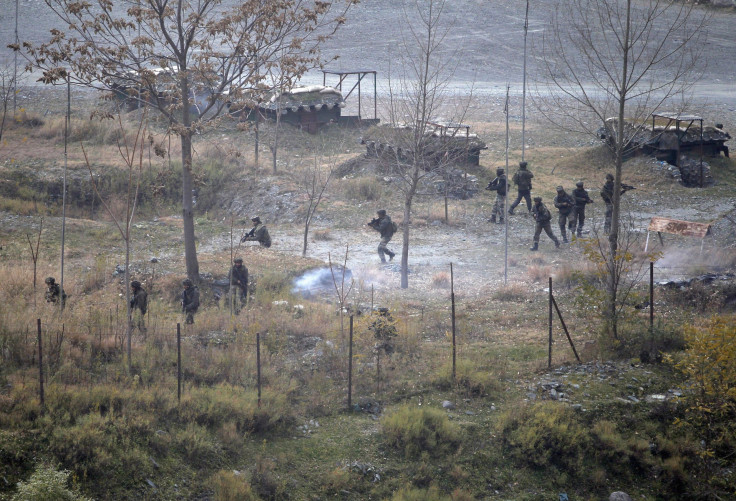Pakistan-Based Militants Planning Attacks In India Ahead Of Obama's Visit: Indian Army Official

A senior official of the Indian army claimed that Pakistan-based militants are planning to carry out attacks on sensitive targets across India ahead of U.S. President Barack Obama’s visit to the country. Obama is scheduled to attend India’s Republic Day celebrations in the capital city of New Delhi on Jan. 26.
“About 200 militants in 36 launch pads across Pir Panjal range are trying to infiltrate into the Indian side,” Indian Army's Lt. Gen. K. H. Singh reportedly said on Thursday, adding that intelligence inputs suggested that militants might try to attack army convoys, schools and other civilian targets across the country. The Pir Panjal range is a group of mountains in the inner Himalayan region that extends into the north Indian state of Jammu and Kashmir.
Pakistani military and the country's intelligence agency, Inter-Services Intelligence (ISI), were providing support and training to the militants in designated “war rooms,” local media reports quoted Singh, as saying.
“The structure of the war rooms is that they are led by the ISI and have representatives of local commanders of the army and the terrorist groups and then they decide which operations to conduct, when and where to conduct (these operations),” Singh reportedly said.
The statement by the Indian army official comes just days after a boat, which the Indian government claimed was carrying "suspected terrorists" from Pakistan, was intercepted by Indian security forces off the coast of the western state of Gujarat. The vessel with four people on board sank after an explosion was triggered by a fire below deck.
Meanwhile, The Express Tribune, a Pakistani daily, reported on Thursday that the government in Islamabad is planning to ban two militant groups, the North Waziristan-based Haqqani Network and the Lashkar-e-Taiba (LeT)-affiliated Jamaat-ud-Dawa (JuD).
The news of the possible ban comes just a month after militants of the Pakistani Taliban attacked an army-run school in the city of Peshawar and killed over 140 people, most of them children. The attack is believed to have been carried out in response to the Pakistani military’s operations in the restive northwestern regions, where the army has deployed over 30,000 soldiers.
A ban on JuD could potentially improve Pakistan’s ties with India, which has consistently claimed that JuD is a front for the LeT. Militants of the LeT were implicated in the 2008 attacks in the Indian city of Mumbai that left over 160 people dead.
The Haqqani Network, which is allied with the Taliban, has been blamed for a 2008 attack on the Indian embassy in Kabul and a 2011 attack on the U.S. embassy in the same city. Although the Haqqani Network was designated as a terrorist organization by the U.S. government in 2012, many, including India, have accused the Pakistani government of not doing enough to clamp down on the group.
“This move shows that the government is serious to dismantle terror groups in the country,” Tasneem Noorani, a retired Pakistani bureaucrat, told the Express Tribune. “The ban on Haqqani Network means distinction of good and bad Taliban no longer exists in Pakistan.”
© Copyright IBTimes 2024. All rights reserved.






















